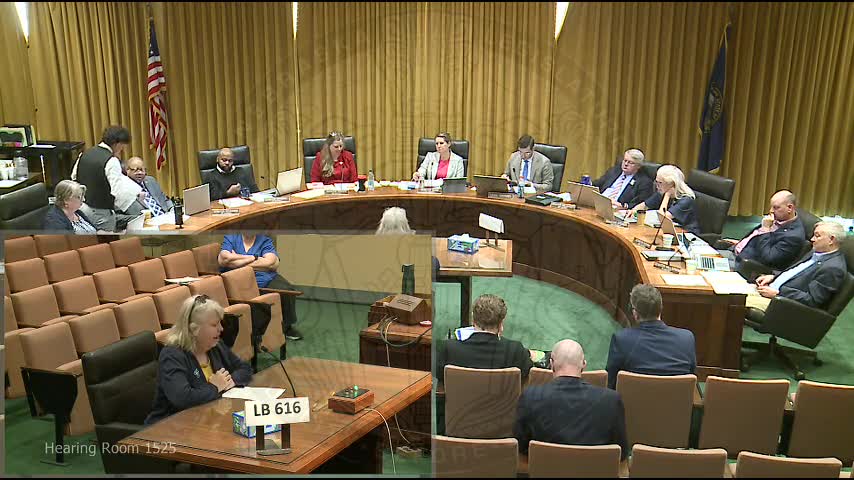Nebraska Senators Discuss Automated Traffic Enforcement and Privacy Concerns
March 29, 2025 | 2025 Legislature NE, Nebraska
This article was created by AI summarizing key points discussed. AI makes mistakes, so for full details and context, please refer to the video of the full meeting. Please report any errors so we can fix them. Report an error »

A heated debate unfolded during the Nebraska Legislature's Judiciary Committee meeting on March 29, 2025, as lawmakers discussed the implications of automated traffic enforcement systems, particularly red light cameras. Proponents of the legislation highlighted compelling statistics, noting that jurisdictions employing automated enforcement have seen a 21% decrease in fatal red light crashes and a 62% reduction in speeding violations. They argued that the primary goal of such systems is to deter violations rather than simply catch offenders, emphasizing that increased compliance would ultimately lead to reduced revenue from fines.
Senator DeBoer, a key supporter of the bill, urged the committee to consider the potential safety benefits for vulnerable road users, asserting that the technology could alleviate the burden on overworked law enforcement officers. "This bill will really make a meaningful improvement to safety," she stated, advocating for its passage.
However, opposition emerged from representatives of the ACLU of Nebraska and the Nebraska Criminal Defense Attorney Association, who raised significant concerns about privacy and due process. Opponents argued that the use of automated license plate readers could lead to unjust surveillance and questioned the fairness of treating traffic infractions as civil rather than criminal offenses. Spike Eicholt, speaking on behalf of the ACLU, emphasized that traffic violations are currently classified as criminal, which entitles individuals to certain legal protections that could be undermined by the proposed changes.
The discussion also touched on the reliability of the technology used in these systems, with some lawmakers expressing skepticism about the accuracy of automated enforcement. Senator McKinney pointed out potential issues with the technology, suggesting that reliance on cameras might not be as effective as traditional policing methods.
As the committee deliberates, the outcome of this legislation could reshape traffic enforcement in Nebraska, balancing the need for public safety with concerns over civil liberties and the integrity of the legal process. The committee is expected to continue discussions in the coming weeks, weighing the benefits of enhanced safety against the potential risks of increased surveillance.
Senator DeBoer, a key supporter of the bill, urged the committee to consider the potential safety benefits for vulnerable road users, asserting that the technology could alleviate the burden on overworked law enforcement officers. "This bill will really make a meaningful improvement to safety," she stated, advocating for its passage.
However, opposition emerged from representatives of the ACLU of Nebraska and the Nebraska Criminal Defense Attorney Association, who raised significant concerns about privacy and due process. Opponents argued that the use of automated license plate readers could lead to unjust surveillance and questioned the fairness of treating traffic infractions as civil rather than criminal offenses. Spike Eicholt, speaking on behalf of the ACLU, emphasized that traffic violations are currently classified as criminal, which entitles individuals to certain legal protections that could be undermined by the proposed changes.
The discussion also touched on the reliability of the technology used in these systems, with some lawmakers expressing skepticism about the accuracy of automated enforcement. Senator McKinney pointed out potential issues with the technology, suggesting that reliance on cameras might not be as effective as traditional policing methods.
As the committee deliberates, the outcome of this legislation could reshape traffic enforcement in Nebraska, balancing the need for public safety with concerns over civil liberties and the integrity of the legal process. The committee is expected to continue discussions in the coming weeks, weighing the benefits of enhanced safety against the potential risks of increased surveillance.
View full meeting
This article is based on a recent meeting—watch the full video and explore the complete transcript for deeper insights into the discussion.
View full meeting
